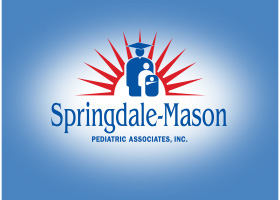Growth Development
Bright Futures Parent Handout: 12 Month Visit
View spanish version, share, or print this article.
ICD10
-
Z00.12 -
99382 -
99392
Here are some suggestions from Bright Futures experts that may be of value to your family.
How Your Family is Doing
-
If you are worried about your living or food situation, reach out for help. Community agencies and programs such as WIC and SNAP can provide information and assistance.
-
Don't smoke or use e-cigarettes. Keep your home and car smoke-free. Tobacco-free spaces keep children healthy.
-
Don't use alcohol or drugs.
-
Make sure everyone who cares for your child offers healthy foods, avoids sweets, provides time for active play, and uses the same rules for discipline that you do.
-
Make sure the places your child stays are safe.
-
Think about joining a toddler playgroup or taking a parenting class.
-
Take time for yourself and your partner.
-
Keep in contact with family and friends.
Establishing Routines
-
Praise your child when he does what you ask him to do.
-
Use short and simple rules for your child.
-
Try not to hit, spank, or yell at your child.
-
Use short time-outs when your child isn't following directions.
-
Distract your child with something he likes when he starts to get upset.
-
Play with and read to your child often.
-
Your child should have at least one nap a day.
-
Make the hour before bedtime loving and calm, with reading, singing, and a favorite toy.
-
Avoid letting your child watch TV or play on a tablet or smartphone.
-
Consider making a family media plan. It helps you make rules for media use and balance screen time with other activities, including exercise.
Feeding Your Child
-
Offer healthy foods for meals and snacks. Give 3 meals and 2 to 3 snacks spaced evenly over the day.
-
Avoid small, hard foods that can cause choking—popcorn, hot dogs, grapes, nuts, and hard, raw vegetables.
-
Have your child eat with the rest of the family during mealtime.
-
Encourage your child to feed herself.
-
Use a small plate and cup for eating and drinking.
-
Be patient with your child as she learns to eat without help.
-
Let your child decide what and how much to eat. End her meal when she stops eating.
-
Make sure caregivers follow the same ideas and routines for meals that you do.
Finding a Dentist
-
Take your child for a first dental visit as soon as her first tooth erupts or by 12 months of age.
-
Brush your child's teeth twice a day with a soft toothbrush. Use a small smear of fluoride toothpaste (no more than a grain of rice).
-
If you are still using a bottle, offer only water.
Safety
-
Make sure your child's car safety seat is rear facing until he reaches the highest weight or height allowed by the car safety seat's manufacturer. In most cases, this will be well past the second birthday.
-
Never put your child in the front seat of a vehicle that has a passenger airbag. The back seat is safest.
-
Place gates at the top and bottom of stairs. Install operable window guards on windows at the second story and higher. Operable means that, in an emergency, an adult can open the window.
-
Keep furniture away from windows.
-
Make sure TVs, furniture, and other heavy items are secure so your child can't pull them over.
-
Keep your child within arm's reach when he is near or in water.
-
Empty buckets, pools, and tubs when you are finished using them.
-
Never leave young brothers or sisters in charge of your child.
-
When you go out, put a hat on your child, have him wear sun protection clothing, and apply sunscreen with SPF of 15 or higher on his exposed skin. Limit time outside when the sun is strongest (11:00 am�3:00 pm).
-
Keep your child away when your pet is eating. Be close by when he plays with your pet.
-
Keep poisons, medicines, and cleaning supplies in locked cabinets and out of your child's sight and reach.
-
Keep cords, latex balloons, plastic bags, and small objects, such as marbles and batteries, away from your child. Cover all electrical outlets.
-
Put the Poison Help number into all phones, including cell phones. Call if you are worried your child has swallowed something harmful. Do not make your child vomit.
What to Expect at Your Child's 15 Month Visit
We will talk about
-
Supporting your child's speech and independence and making time for yourself
-
Developing good bedtime routines
-
Handling tantrums and discipline
-
Caring for your child's teeth
-
Keeping your child safe at home and in the car
The information contained in this handout should not be used as a substitute for the medical care and advice of your pediatrician. There may be variations in treatment that your pediatrician may recommend based on individual facts and circumstances. Original handout included as part of the Bright Futures Tool and Resource Kit, 2nd Edition.
Listing of resources does not imply an endorsement by the American Academy of Pediatrics (AAP). The AAP is not responsible for the content of external resources. Information was current at the time of publication.
The American Academy of Pediatrics (AAP) does not review or endorse any modifications made to this handout and in no event shall the AAP be liable for any such changes.
� 2019 American Academy of Pediatrics. All rights reserved.



